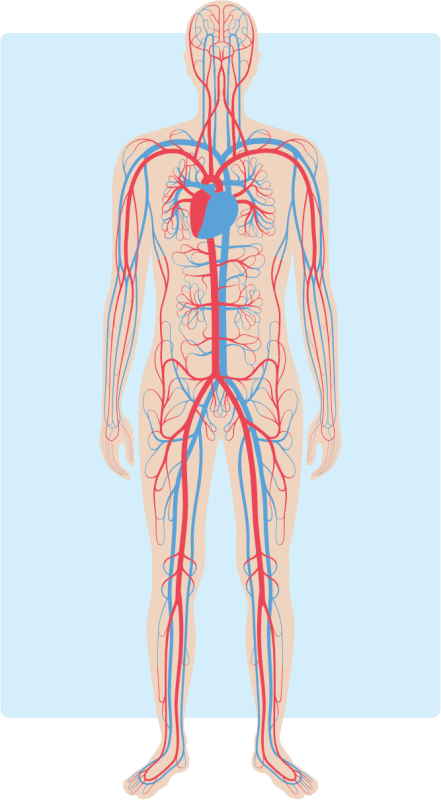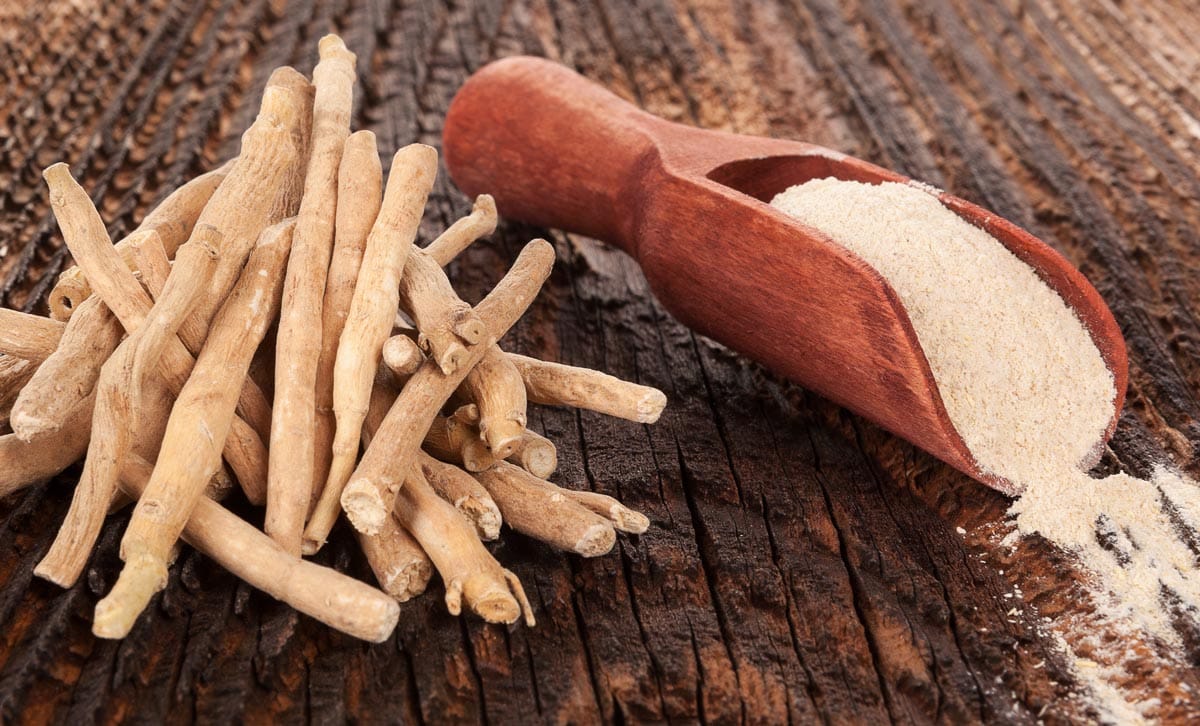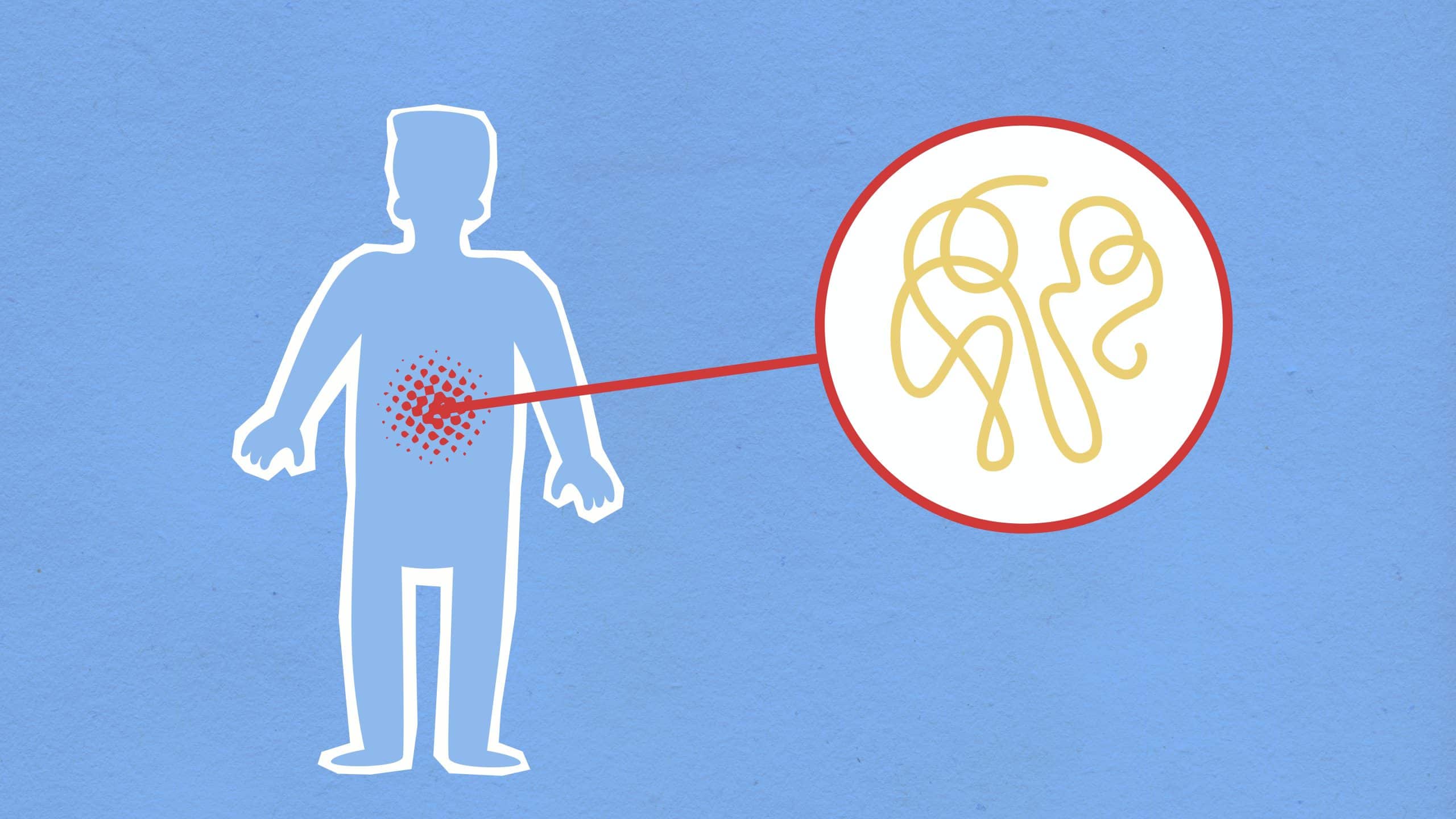Your cart is currently empty!
Category: Immune Support
-

Boosting Immunity: Nature’s Path to Wellness
The modern world has introduced new challenges and dangers, including those related to viruses, infections and unprecedented levels of toxins that can trigger weakened immune systems and debilitating chronic inflammation. Now more than ever is the best time to support a healthy immune system, thereby supporting healthy inflammatory responses. Here are some science-supported ideas to get you started.
Vitamin C
Antioxidants like vitamin C help protect cells from oxidative damage caused by harmful free radicals. Immune cells can be particularly susceptible to damage from oxidative stress, and vitamin C helps neutralize these free radicals, aiding in the proper functioning of immune cells. Vitamin C is necessary for the synthesis of collagen. Collagen plays a crucial role in wound healing and maintaining the integrity of skin, blood vessels, digestive lining and other connective tissues. A healthy barrier is an important part of the body’s defense against harmful pathogens. Vitamin C stimulates the production of white blood cells to help fight infection. Studies show vitamin C supplementation helps reduce the duration and severity of colds and provide symptom relief.
Vitamin D3
Many people, especially older adults, experience a decrease in their vitamin D levels as they age. Studies have shown that vitamin D deficiency is associated with increased hospitalization of older adults, independent of markers of physical and cognitive frailty. Evidence suggests that vitamin D deficiency is associated with increased risk and greater severity of infection.4 Vitamin D helps modulate the immune system, reducing inflammation and promoting the body’s defense against infections.
Elderberry
Black elderberry fruit possesses powerful antioxidant, anti-inflammatory and antiviral compounds that can enhance the production of cytokines, which are signaling molecules that play a role in the immune system’s response to infections.5 Because of its antiviral properties, elderberry is shown to help reduce the severity and duration of respiratory infections, such as the common cold and influenza.
Zinc
Zinc is important for the development and function of immune cells, which are crucial for cellular communication during immune reactions. Immune cells are integral to the body’s defense against infections, and they support healthy inflammation. Zinc is a cofactor for more than 200 enzymes in the body involved in immune function, DNA synthesis and cell division. These processes are crucial for the proper functioning of immune cells and overall immune system activity. Zinc is also a powerful antioxidant that helps protect cells from oxidative stress and damage caused by free radicals. Immune cells are particularly susceptible to oxidative stress, so maintaining optimal zinc levels can support their function. When supplementing with zinc, I recommend zinc gluconate for its immune-boosting potential.
Self-Care There is no quick fix for building a strong immune system. It’s important to note that a weakened immune system is influenced by various factors, including poor lifestyle choices, environmental factors and genetics. Building and maintaining a healthy immune response involves adopting self-care efforts, including regular exercise, a balanced diet, stress management, adequate sleep and avoiding exposure to pathogens, toxins and pollutants.
About Paul Bernitt, DHH

Paul Bernitt, DHH Passionate advocate for helping others experience greater physical, emotional and spiritual wellness. Board-Certified Doctor of Holistic Health and Director of Wellness Services, TriVita, Inc.
References
1. https://www.ncbi.nlm.nih.gov/pmc/articles/PMC5409678/
2. https://www.ncbi.nlm.nih.gov/books/NBK279544/
3. https://www.ncbi.nlm.nih.gov/pmc/articles/PMC7918803/
4. https://www.ncbi.nlm.nih.gov/pmc/articles/PMC3756814/
5.https://www.ncbi.nlm.nih.gov/pmc/articles/PMC8026097/#:~:text=There%20is%20some%20evidence%20that,12%2C%2014%2C%2015%5D
6. https://www.ncbi.nlm.nih.gov/pmc/articles/PMC4848651/
7.https://pubmed.ncbi.nlm.nih.gov/9701160/#:~:text=It%20is%20clear%20that%20zinc,neutrophils%20and%20natural%20killer%20cells
8 https://www.ncbi.nlm.nih.gov/pmc/articles/PMC3648744/
-

Get to Know NO—
When you hear “nitric oxide,” you might think of nitrous oxide, better known as laughing gas. While you might appreciate nitrous oxide gas at the dentist’s office, nitric oxide is quite different. Taking care to maintain plenty of nitric oxide in our bodies is no laughing matter, and you need to know why.
Doctors Robert Furchgott, Louis Ignarro and Ferid Murad won the 1998 Nobel Prize for medicine after discovering the importance of “nitric oxide as a signalling molecule in the cardiovascular system. In the two decades since, nitric oxide has been studied extensively and is even considered by some to be the most important molecule in the body due to its role in transmitting nerve impulses from cell to cell in every tissue in the body.
Heart Disease on the Rise Around the World
According to the World Heart Federation, deaths due to cardiovascular disease have risen 60% across the globe over the last 30 years. The World Health Organization estimates that 1.28 billion adults over age 30 have hypertension, or high blood pressure, with only 21% having it under control.
Statistically speaking, half of all men in the United States, and nearly half of women, have hypertension. What’s more, almost half of the adults in the U.S. with high blood pressure aren’t aware they have the condition and, therefore, aren’t likely to do anything to improve their cardiovascular health.
While such numbers may not come as news to you, you might be surprised to learn that heart disease often has less to do with the heart itself than with the arteries and blood vessels throughout your circulatory system.
High blood pressure occurs when the force of blood pushing against the walls of your arteries is consistently too high. Vasodilation, or relaxation, of the arteries can become compromised due to damage caused by years of uncontrolled elevated blood pressure, high lipids and glucose in the blood, and calcified plaque buildup in the arterial lining. Instead of the heart having smooth, flexible arteries to pump blood through, the heart has to work extra hard to force blood through narrow, stiff arteries, which can lead to serious cardiovascular conditions as we age.
What Does Nitric Oxide Do in the Body?
The best known function of nitric oxide in the body is its ability to help manage high blood pressure, but healthy levels of nitric oxide generate a wealth of benefits for a number of body systems.
- Cardiovascular – In healthy arteries, nitric oxide signals the vasodilation response of arteries. Vasodilation improves blood flow, increases oxygen in the blood, and modulates blood pressure.
- Pulmonary – Similar to its function in the cardiovascular system, nitric oxide signals bronchodilator nerves to dilate, increasing the lungs’ ability to deliver oxygen throughout the body.
- Immune – Nitric oxide blocks virus replication, giving the immune system a better chance of fighting off symptoms associated with viruses, harmful pathogens and other foreign invaders.
- Cognitive – Studies have shown that a nitrate-rich diet may increase regional cerebral blood flow to the frontal lobe of the brain in older patients, an important factor in protecting against cognitive decline.
- Endocrine – This molecule has been shown to improve insulin sensitivity, which may reduce diabetes complications, and it is known to help improve other hormone functions in the body, as well.

How Do You Get Nitric Oxide?
The good news is that our bodies produce nitric oxide as naturally as we breathe, literally! Deep breathing in through your nose not only produces nitric oxide in the paranasal sinuses, it effectively delivers it down into your lungs. Aside from your sinuses, nitric oxide is produced in the endothelial cells that line the insides of your blood vessels—all 60,000 miles of them.
The bad news is that our bodies produce less and less nitric oxide as we age, which can leave us with a lack of energy, high blood pressure and cognitive decline. By age 40, most Americans produce only half the nitric oxide they produced in their 20s. By age 50, nitric oxide production has decreased to only 35%, and it falls to a mere 15% of what it once was by the time we reach age 60.

With such a dramatic decrease in our bodies’ own ability to produce this crucial molecule, it is essential that we find other ways to get nitric oxide. Sadly, nitric oxide itself isn’t something you can consume; however, we can consume food rich in nitrates, which the body converts into nitric oxide, as well as antioxidants, which aid in the conversion process.
The amino acids L-arginine and L-citrulline also produce nitric oxide in the body. L-arginine can be found in red meat, fish and dairy products, while L-citrulline is also available in meat, as well as legumes. Beets are also a wonderful source of nitrates.
A Scientific Solution for Low NO
If red meat and dairy aren’t feasible for your diet for any reason, supplementing with a product like TriVita’s Nitric Oxide Plus may be an excellent way to make sure your body can make enough nitric oxide.
With 2,000 mg of beet root powder, plus horse chestnut and the amino acids L-arginine and L-citrulline, TriVita’s unique nitric oxide formulation is optimally balanced to help support blood flow and healthy circulation.
References
1https://www.nobelprize.org/prizes/medicine/1998/7543-the-nobel-prize-in-physiology-or-medicine-1998/
2https://world-heart-federation.org/news/deaths-from-cardiovascular-disease-surged-60-globally-over-the-last-30-years-report/#:~:text=Search%20for%3A%20Search-,Deaths%20from%20cardiovascular%20disease%20surged%2060%25%20globally,the%20last%2030%20years%3A%20Report&text=GENEVA%2C%2020%20May%202023%20%E2%80%93%20Deaths,World%20Heart%20Federation%20(WHF)
3https://www.who.int/news-room/fact-sheets/detail/hypertension
4https://www.cdc.gov/bloodpressure/facts.htm#:~:text=Rates%20of%20High%20Blood%20Pressure%20Control%20Vary%20by%20Sex%20and%20Race&text=A%20greater%20percentage%20of%20men,pressure%20than%20women%20(44%25).&text=High%20blood%20pressure%20is%20more,or%20Hispanic%20adults%20(39%25)
5https://www.who.int/news-room/fact-sheets/detail/hypertension
6https://www.trivita.com/the-sky-is-the-limit/
7https://www.ncbi.nlm.nih.gov/pmc/articles/PMC4425174/
8https://www.ncbi.nlm.nih.gov/pmc/articles/PMC1906415/
9https://www.ncbi.nlm.nih.gov/pmc/articles/PMC3018552/
10https://www.ncbi.nlm.nih.gov/pmc/articles/PMC3390088/
11https://pubmed.ncbi.nlm.nih.gov/8971255/#:~:text=Abstract,inspiration%2C%20especially%20during%20nasal%20breathing
-

Ashwagandha, the Ancient Adaptogenic Herb
Statistics suggest that stress in America is on the rise, with as much as 63% of the U.S. workforce having considered leaving their jobs to escape work-related stress. According to a Harris Poll conducted for the American Psychological Association, the economy, our jobs and health issues rank among the top stressors for survey respondents. The World Health Organization estimates that 12 billion workdays are lost annually worldwide due to anxiety or depression, at a cost of one trillion U.S. dollars per year.
With the ever-rising costs of healthcare and less access to in-person doctor visits, self-care is becoming a more important means of maintaining our physical and mental wellbeing.
As APA President Rebecca W. Brendel, M.D., J.D. states, “What’s promising is that many Americans are aware of their mental health needs and taking steps to improve their own mental health.”

The Ashwagandha Plant, Withania Somnifera
Stress is not just a modern-day dilemma. People have sought solace from worry and anxiety for centuries. Since life began in a Garden, it makes sense to consider the plants that God has given us as potential sources for wellness solutions. One plant in particular has shown great promise in this area, both practically and scientifically: Ashwagandha.
Originally found in the driest parts of India, the Middle East and parts of Africa, Ashwagandha grows as a desert shrub. This hearty evergreen goes by many names, including winter cherry, Indian ginger and even poison gooseberry.

Traditional Uses
The ancient peoples of the Indian subcontinent used the plant’s roots, leaves, berries and even bark for myriad medicinal purposes.
The American Botanical Society says that the dried root and whole plant are used in Indian folk medicine and references the claims of ethnobotanist James Duke, PhD, that various parts of the Ashwagandha plant are used as folk remedies for everything from hypertension and senility to asthma and hiccups.
This ancient herb has garnered newfound interest in our day for its adaptogenic properties.
adaptogen – Adaptogens are natural substances, such as herbs and roots, that may help the body adapt to and better manage stress.
The Role of Cortisol
Cortisol is a hormone our body releases as part of the fight-or-flight response. When we feel threatened, our adrenal glands release hormones including cortisol and adrenaline into the bloodstream. These hormones work together to raise heart rate, increase glucose in the bloodstream and help ensure your body can repair itself more efficiently.
cortisol – Cortisol is the body’s primary stress hormone, which is released by the adrenal glands in response to a perceived threat
This natural process is helpful if you’re facing a dangerous or threatening situation. When your body is constantly in fight-or-flight mode because of work deadlines or difficulties in a relationship, however, chronic stress can lead to a number of health problems.
According to the Mayo Clinic, overexposure to cortisol puts you at increased risk for health problems such as these:
- Anxiety
- Depression
- Digestive problems
- Headaches
- Muscle tension and pain
- Heart disease, heart attack, high blood pressure and stroke
- Sleep problems
- Weight gain
- Memory and concentration impairment
Studies have shown that Ashwagandha helps balance the stress hormone cortisol, which should be higher in the daytime and lower at night.
Less Stress > Balanced Cortisol > Lower Blood Pressure > Greater Wellness]
Ashwagandha for Stress Relief
Genetics and life experiences help determine how you react to stress. Regardless of your background or whether you’re able to change your circumstances, there are steps you can take to manage stress better. You may want to keep a journal, volunteer in your community or take up a hobby.
As part of a healthy lifestyle, including a healthy diet, drinking plenty of water and getting seven to nine hours of restful sleep each night, you might want to consider taking an Ashwagandha supplement to help manage stress.
Several studies have supported the assertion that the herb may lessen perceived levels of stress and anxiety–even significantly.
TriVita’s Ashwagandha KSM-66® supplement was developed to help reduce stress and to promote sleep and faster recovery. Unlike many other Ashwagandha supplements, the serving size of our formulation is 600mg, equal to that used in the clinical studies.
Studies of this KSM-66 formulation have demonstrated a significant reduction in perceived stress, as well as better quality of sleep and increased alertness when rising. Less stress and healthier cortisol levels could contribute to better overall health and a greater sense of wellbeing.
References
- https://www.stress.org/daily-life/#:~:text=key%20stress%20statistics
- https://www.apa.org/news/press/releases/stress/2022/october-2022-topline-data.pdf
- https://www.who.int/news-room/fact-sheets/detail/mental-health-at-work#:~:text=Globally%2C%20an%20estimated%2012%20billion,per%20year%20in%20lost%20productivity
- https://www.psychiatry.org/news-room/news-releases/americans-anticipate-higher-stress-at-the-start-of#:~:text=americans%20are%20telling
- https://www.herbalgram.org/resources/herbalgram/issues/99/table-of-contents/hg99-herbprofile-ashwagandha/
- https://www.mayoclinic.org/healthy-lifestyle/stress-management/in-depth/stress/art-20046037
- https://www.goodhousekeeping.com/health/diet-nutrition/a40705977/ashwagandha-health-benefits/#:~:text=may%20help%20dial%20down%20stress
- https://www.forbes.com/health/body/ashwagandha-benefits//#:~:text=relieves%20stress%20and%20anxiety
-

The Top 10 Reasons You Should Take Ashwagandha
Unleash the Power of Nature

In recent years, there has been a growing interest in natural remedies and herbal supplements for promoting well-being and addressing various health concerns. Among these, Ashwagandha, also known as Withania somnifera, has gained significant popularity for its potential health benefits. Derived from a small shrub native to India, Ashwagandha has been used for centuries in that arid desert region. Let’s take this opportunity to explore the top 10 science-supported benefits of incorporating Ashwagandha into your daily routine.
1. Stress and Anxiety Relief
Ashwagandha is renowned for its adaptogenic properties, which help the body adapt to stress. Several studies have demonstrated its effectiveness in reducing stress and anxiety levels. By regulating cortisol, the stress hormone, Ashwagandha may promote a sense of calmness, reduce anxiety and enhance overall resilience to stressors.
2. Improved Cognitive Function
Research suggests that Ashwagandha may support cognitive function and memory. Ashwagandha extract exhibited improved cognitive performance such as increasing short-term working memory and sustained attention. Preclinical studies are showing its neuroprotective properties may aid in combating neurodegenerative conditions by reducing oxidative stress and inflammation in the brain.
3. Enhanced Energy and Stamina
Ashwagandha has been traditionally used as a rejuvenating herb to enhance energy levels and stamina. Ashwagandha supplementation has been shown to increase cardiorespiratory endurance and overall physical performance during physical activity, making it an excellent choice for athletes and individuals with active lifestyles.
4. Immune System Support
Studies have shown that Ashwagandha possesses immunomodulatory properties, helping to strengthen the immune system. It has been shown to enhance immune response and increase circulating antibody cells, which defend against infection due to viruses and toxins.
5. Hormonal Balance
For women experiencing hormonal imbalances, Ashwagandha may be a game-changer. It has been shown to aid in the regulation of the endocrine system, reducing symptoms of PMS and menopause, and promoting overall hormonal balance. Ashwagandha has been used for centuries as an aphrodisiac, as it is believed to enhance sexual health by improving fertility, boosting testosterone levels in men, and increasing libido in both men and women.
6. Cardiovascular Health
Research suggests that Ashwagandha may have beneficial effects on cardiovascular health. Ashwagandha extract helped improve several markers of cardiovascular health, including cholesterol and triglyceride levels.
7. Anti-Inflammatory Properties
Ashwagandha exhibits potent anti-inflammatory properties, which have been demonstrated in various studies. Ashwagandha has been shown to reduce inflammation and potentially alleviate conditions associated with chronic inflammation.
8. Sleep Quality Improvement
Ashwagandha’s calming and stress-relieving properties may contribute to better sleep quality. Ashwagandha supplementation has been shown to improve sleep, the sleep-wake cycle and sleep quality among participants with insomnia.
9. Muscle Strength and Recovery
Athletes and fitness enthusiasts may benefit from Ashwagandha’s ability to improve muscle strength and aid in post-exercise recovery. Ashwagandha supplementation has been shown to significantly increase muscle strength and reduce exercise-induced muscle damage.
10. Anti-Aging Benefits

The powerful antioxidants found in Ashwagandha may protect the body against cellular damage caused by free radicals, thus slowing down the aging process. Its rejuvenating properties have been shown to promote youthful-looking skin, increased vitality, and improved overall longevity and quality of life.
Ashwagandha potentially offers a multitude of health benefits, making it a versatile herb for anyone seeking to improve their overall well-being. From stress reduction and enhanced cognitive function to hormonal balance and immune support, the potential advantages of incorporating Ashwagandha into your daily routine hold great promise. Embrace the power of nature and unlock a healthier, more vibrant life with Ashwagandha.
About Paul Bernitt, DHH

Paul Bernitt is a Board-Certified Doctor of Holistic Health by the American Naturopathic Medical Certification Board. He is also a Master Herbalist, a Holistic Wellness Practitioner, Doctor of Divinity, and has a degree in Mind-Body Transformational Psychology. Additionally, Paul is certified in Clinical Hypnotherapy, Holistic Nutrition, Bioenergetics, and Life Coaching.
Paul’s mission is to end as much needless suffering as possible by helping people discover hope, health, and healing. He has helped thousands of people experience the value of optimal health and wellness so they can live their purpose with greater energy, vitality, and quality of life mentally, physically, spiritually, emotionally, and environmentally.
References
- https://www.ncbi.nlm.nih.gov/pmc/articles/PMC3573577/
- https://www.ncbi.nlm.nih.gov/pmc/articles/PMC6750292/
- https://www.ncbi.nlm.nih.gov/pmc/articles/PMC9565281/
- https://www.sciencedirect.com/science/article/abs/pii/S0378874119339182
- https://www.ncbi.nlm.nih.gov/pmc/articles/PMC4687242/
- https://www.ncbi.nlm.nih.gov/pmc/articles/PMC8397213/
- https://pubmed.ncbi.nlm.nih.gov/34553463/
- https://www.ncbi.nlm.nih.gov/pmc/articles/PMC6438434/
- https://www.ncbi.nlm.nih.gov/pmc/articles/PMC3487234/
- https://pubmed.ncbi.nlm.nih.gov/29620265/
- https://www.ncbi.nlm.nih.gov/pmc/articles/PMC6827862/
- https://www.ncbi.nlm.nih.gov/pmc/articles/PMC4658772/
- https://www.ncbi.nlm.nih.gov/pmc/articles/PMC3252722/20radicals
-

12 Essential Benefits of Zinc
Zinc is a very important and versatile mineral for our bodies. We all need a certain level of zinc to maintain critical healthy body functions. Zinc is a surprising multitasker and if we have insufficient levels of zinc, it may become dangerous to our wellness journey.
Here are some of the many benefits of zinc:
- Boosts immune health
- Metabolic function
- Essential metal ion for brain health
- Controls oxidative stress affecting the heart
- Decreases inflammation
- Accelerates wound healing
- Reduce the risk of age-related diseases
- Affects your sense of taste and smell
- Can slow the progression of macular degeneration
- May shorten the length of colds
- Helps with protein & DNA synthesis
- Body growth & development rely on zinc
- Skin health

References:
https://www.mayoclinic.org/drugs-supplements-zinc/art-20366112#
https://www.webmd.com/vitamins/ai/ingredientmono-982/zinc -

The Critical Role of Zinc in Your Body
We all have the mineral zinc in our bodies. Zinc is important for human health as it helps with heart and brain health, immune system function and growth. Zinc is found in many foods, such as meat, poultry, seafood, milk, eggs, whole grains, and beans and can also be taken as a supplement. Zinc plays a role in many biochemical reactions in the body and helps the body make proteins, and it assists to protect cells from damage. Zinc also supports the immune system and helps wound healing. A deficiency of zinc in the body may cause problems with growth and development, immunity and healing. Severe zinc deficiency can be fatal. People who may be at risk for zinc deficiency include vegetarians, people with chronic diseases, pregnant women and elderly people.
In addition to essential metabolic functions, the level of zinc in the body also affects the heart muscle. Oxidative stress is a predisposing factor for heart diseases and when this occurs, it may be due to a shortage of zinc.
Zinc is an essential metal ion for brain health. It is involved in a variety of important processes, including cell signaling, synaptic transmission and ion channels.
Talk to your doctor if you think you might be at risk for zinc deficiency.
-

The "Miracle Molecule" For Immune & Brain Health!
During the past two decades, nitric oxide (NO) has been recognized as one of the most versatile players in the immune system. It’s involved in the pathogenesis and control of infectious diseases, tumors, autoimmune processes and chronic degenerative diseases.
Nitric oxide plays many important roles in the immune system. It’s produced in high amounts from specialized immune system cells called macrophages. Following bacterial infection, for example, the body produces chemicals known as cytokines which activate the cells of the immune system, including macrophages, and help guide them to the site of infection. The high amounts of nitric oxide produced by the macrophages are toxic to the bacteria and play an important role in their destruction. The production of nitric oxide in this way also helps protect against other types of infection, including viruses and parasites. In fighting off bacteria and diseases, nitric oxide helps the immune system keep our bodies healthy.
Nitric oxide, because it promotes healthy blood flow, including to the brain, has cognitive benefits as well. Alzheimer’s disease has also been linked to nitric oxide decline. One out of every eight baby boomers will get Alzheimer’s disease after they turn 65 years old; at age 85, that risk grows to one in two. As we age, this becomes even more critical. This is why healthy circulation and blood flow are so important. We want to be able to give our aging selves the best chance to live life to the fullest, and with more information at our fingertips than ever before, we have the tools to flourish as we age.
-

Antiviral Benefits of Trans-resveratrol
Resveratrol is a type of natural phenol and a phytoalexin produced by red grapes, peanuts and other plants. Trans-resveratrol is the active ingredient in resveratrol and is widely used in supplements.
Trans-resveratrol is great at multitasking. It can help with heart health, brain health, anti-aging and has antiviral benefits. In recent years, extensive research on resveratrol has been carried out, demonstrating its capacity to prevent a wide variety of conditions, including cardiovascular diseases and cancer, and to control fungal, bacterial and viral infections. Studies suggest that the chemical agent in resveratrol interferes with infection by altering cellular pathways rather than acting directly against the virus itself.
The antiviral effects of resveratrol have been demonstrated in a number of pathogenic human and animal viruses, including influenza, Epstein-Barr and various respiratory viruses. The resveratrol inhibits viral protein synthesis and various transcription and signaling pathways and viral-related gene expressions.
There still are more studies to be done on resveratrol, but evidence gathered so far shows high antiviral potential. Resveratrol has shown to be a potent antiviral molecule against various types of DNA and RNA viruses.
References
-

Brain Health & Trans-resveratrol
Growing older is the largest risk factor for neurodegenerative disease, commonly known as brain health. Included in that group is Alzheimer’s, Huntington’s and Parkinson’s diseases along with ALS. Some of these are passed down in our genes, but there are ways to at least slow down the process. The good news is that resveratrol has shown that it may help with this. Resveratrol is a type of natural phenol and a phytoalexin produced by red grapes, peanuts and other plants. Trans-resveratrol is the active ingredient in resveratrol and is widely used in supplements. Both have beneficial effects on the human brain. Clinical trials have demonstrated that resveratrol reduces levels of amyloid-beta in cerebrospinal fluid and improves cognitive function in people with Alzheimer’s disease.

Clinical evidence derived from randomized clinical trials suggests that resveratrol can help with memory loss by improving cerebral blood flow, cerebrospinal fluid level and performance in some cognitive tests.
As the general population grows older, hundreds of millions of people worldwide are affected by neurological disorders. There are many clinical studies dealing with brain health and resveratrol has shown to possess ingredients that can help slow down, and in some cases, prevent neurological disorders, improve memory, as well as slow down the aging process.
Resveratrol may contribute to brain aging reversal by as much as ten years.
References
1. https://pediaa.com/what-is-the-difference-between-resveratrol-and-trans-resveratrol/
2. https://www.ncbi.nlm.nih.gov/pmc/articles/PMC5339301/
3. https://www.ncbi.nlm.nih.gov/pmc/articles/PMC6657254/
4. https://www.nutraingredients.com › Article › 2020/04/08 -

Heart Health & Trans-resveratrol
Heart disease is the leading cause of death in the United States. Heart disease includes various disorders of the heart itself or the blood vessels. It could be coronary artery disease, deep vein thrombosis, congenital heart disease or many others. Heart failure is defined as the inability to pump enough blood to the rest of the body. They all can be classified as a major medical concern and need attention to help slow down the spread or treat the symptoms as best as possible.
Resveratrol is a type of natural phenol and a phytoalexin produced by red grapes, peanuts and other plants. Trans-resveratrol is the active ingredient in resveratrol and is widely used in supplements.
Clinical trials using trans-resveratrol have shown that it may help. Resveratrol could be linked to a lower risk of inflammation and blood clotting, which can lower the risk of heart disease. Resveratrol is also known as a polyphenolic compound and has antioxidant and anti-inflammatory properties. These also help with cardiovascular health. The polyphenols are also present in grapes and red wine, which contributed to the “French Paradox” in the 1990s that found that red wine in moderation may be good for you.
Trans-resveratrol has several beneficial effects and can act at different levels such as cellular signals, enzymatic processes, apoptosis and gene expression. All of these together, along with the ability to flow freely through the bloodstream, have been shown to have positive effects fighting different cardiovascular diseases.

References
https://pediaa.com/what-is-the-difference-between-resveratrol-and-trans-resveratrol/
https://www.ncbi.nlm.nih.gov/pmc/articles/PMC4882663/
https://www.intechopen.com/chapters/62439
-

Tips to Support a Healthy Immune System

The Good and The Bad About Microorganisms
Due to modern advances in technology, medicine and medical care, we can now identify, test and provide treatments for potentially harmful bacterial microorganisms such as viruses, bacteria and influenza. While these advancements in science are successful, the immune system is still the first defense for your body against any harmful substances. The innate (what you are born with) immune system and adaptive (ability to learn and adapt) immune system work together to fight against harmful microorganisms to keep your body healthy.
Even with modern advancements, being exposed to harmful microorganisms is inevitable. Don’t worry as exposure to harmful bacteria with a healthy immune system can be good for you and protect you. While no one wants to develop a fever, a cough, or any other symptom, these symptoms are helping you to recover because your adaptive immune system is learning how to defend and overcome the harmful microorganisms.
That being said, not all microorganisms are bad. There are more microorganisms than cells in the human body as the human body has trillions of microorganisms. In fact, these microorganisms outnumber human cells 10 to 1. The majority of bacterial microorganisms live in the human gut and are called microbiota. Think of your digestive system as the vast milky way with more than 100 trillion good and bad bacteria. Thanks to the immune system, about 1 percent of bacteria in the human body are harmful. Good bacteria help digest food, eliminates disease-causing cells, and make vitamins needed for health. Don’t wait for the next flu bug to propel you to make simple lifestyle changes that can boost your immunity.
Nature’s FARMacy
Seeking ways to maintain and improve overall immunity is the best way to mitigate against the effects of not only harmful microorganisms, but other chronic illnesses. Nature provides plenty of immunity boosters that can be found in foods we consume.

Vitamin C is a wonderful immune-boosting vitamin as it has been shown to protect against free radical damage caused by oxidative stress[1]. Free radicals damage cells such as proteins, DNA, and cell membranes. Harmful bacteria thrive in an environment full of reactive oxygen species (ROS) that cause damage to human cells. Vitamin C is known to be a ROS scavenger reducing oxidative damage. Vitamin C also enhances apoptosis, which is cell death through a programmed sequence eliminating old, damaged, excess, and otherwise unhealthy cells without releasing harmful substances to surrounding tissue.
It’s important to consume food sources rich in vitamin C. Many people think of oranges when they think of vitamin C, however an orange only contains about 69.7 milligrams of vitamin C. To put this into perspective, one papaya contains approximately 187.9 mg, 1 cup of broccoli contains 123.4 mg and 1 cup of bell pepper contains 174.8 mg. The adult recommended daily amount of vitamin C is 60-90 mg per day. While the recommended daily allowance may help prevent scurvy, the optimal daily allowance is 2,000 mg and up. Vitamin C is a water-soluble vitamin, meaning the body doesn’t store it and eliminates excess amounts, which is why consuming the recommended daily amount is vital. Higher doses of vitamin C are considered safe, but too much can lead to diarrhea.
Zinc deficiencies have been linked to immune dysfunctions in humans. Zinc functions as an antioxidant and has been shown to stabilize cell membranes. This immune-boosting mineral has been shown to prevent free radical damage during inflammatory processes. Zinc also boosts T-cells which play a major role in the adaptive immune system response by killing infected cells and activating immune cells, which regulates the immune response.

Foods rich in zinc include calf’s liver, beef, and lamb. There is 10.8 mg of zinc in 4 ounces of calf liver, 6.3 mg in 4 ounces of beef, and 4.6 mg in 4 ounces of lamb. Plant-based foods rich in zinc include a ½ cup of green peas with 1.9 mg, ¼ cup of pumpkin seeds with 2.6 mg, and ¼ cup of sesame seeds with 2.8 mg.
Out of 30 different types of elderberry, the European type known as Sambucus nigra is used the most to stimulate the immune response. Elderberry has been used as a natural remedy for centuries for the common cold, flu, fever, skin eruptions, and other common ailments. The father of medicine, Hippocrates, called elderberry his medicine chest. In herbal medicine, elderberry is considered one of the most widely used healing plants. While science is still trying to understand the benefits of elderberry, one clinical study found supplementation with elderberry substantially reduced upper respiratory symptoms.
The last tip is to eat a colorful diet. Phytonutrients are what give color to fruits and vegetables and it’s important to eat a wide range of colors, especially dark-colored fruits and vegetables. Examples include dark green leafy vegetables like kale, spinach, broccoli, and swiss chard, as well as other vegetables and fruits like tomatoes, carrots, peppers, mangoes, and berries. One that doesn’t get as much attention is the prickly pear. Found in the Sonoran Desert, the prickly pear is known for its anti-inflammatory and anti-viral properties due to its high concentrations of fiber, antioxidants, and carotenoids.
Other Proactive Immune Boosting Opportunities
- Wash your hands with soap and water regularly. Do not touch your mouth and eyes unless you have clean hands. Use disinfecting wipes in public places, work stations, automobiles, food handling areas, bathrooms, and items such as remotes, phones, and other electronic devices.
- Consider using near-infrared light to assist in reducing inflammation.
- Get an air purification system with a HEPA filter and change your home air conditioning filters regularly.
- Ask your doctor about getting micro-nutrient testing to determine if you are deficient in immune-boosting vitamins, minerals, amino acids, and antioxidants. If you are deficient, work with your doctor to help you dose-specific supplements.
- When you or someone you know is not feeling well, take care to not spread what you have to others. Stay home and stay safe.
- Before traveling, consider talking to your doctor about specific vaccinations and what you can do to reduce your exposure to harmful pathogens.
- Take TriVita Clinic’s Inflammation Assessment to identify your risks of a compromised immune system.
References
1. Hawkins J, Baker C, Cherry L, Dunne E. Black elderberry (Sambucus nigra) supplementation effectively treats upper respiratory symptoms: A meta-analysis of randomized, controlled clinical trials. Complement Ther Med. 2019;42:361-365. doi:10.1016/j.ctim.2018.12.004
-

10 Ways to Strengthen Your Body's Immune System Now
Winter is coming and, especially with the cold and flu season, it’s important to know what we can do to keep a strong and balanced immune system to stay healthy and avoid infections.
1. Eat a balanced diet with whole foods
You need many nutrients, such as [TVBLOGCOPY]Vitamin A, C, D and E[/TVBLOGCOPY][MWSBLOGCOPY]Vitamin A, C, D and E[/MWSBLOGCOPY], as well as minerals selenium and zinc, and [TVBLOGCOPY]Omega 3s[/TVBLOGCOPY][MWSBLOGCOPY]Omega 3s[/MWSBLOGCOPY], to support your immune system. Focus on eating whole foods, such as quality animal protein (if you’re an omnivore), legumes, whole grains, nuts and seeds, as well as plenty of fresh fruits and vegetables. Superfoods such as bee pollen, camucamu, reishi mushrooms, and microalgae can give you an extra boost.
Avoid processed meats, fried foods, soft drinks, processed baked goods, or products with artificial sweeteners or refined sugars. Eating too much of them suppresses the immune system.
2. Get plenty of Vitamin C
Fresh fruits and vegetables are our best sources of [TVBLOGCOPY]Vitamin C[/TVBLOGCOPY][MWSBLOGCOPY]Vitamin C[/MWSBLOGCOPY], which help to strengthen our immune system and keep our body healthy. Great food sources of Vitamin C include berries, citrus, kiwi, bell peppers and dark green vegetables.
3. Use herbs and spices
Cook with onions, garlic, ginger, black peppercorn, cayenne pepper, all spice, curry and [TVBLOGCOPY]turmeric[/TVBLOGCOPY][MWSBLOGCOPY]turmeric[/MWSBLOGCOPY]. They contain components that help to boost our immune system.

4. Drink plenty of clean water
Water helps in the production of lymph, which carries white blood cells and other immune system cells. Staying hydrated is one of the best things you can do for your health. For an extra boost, add a slice of lemon, which will provide extra Vitamin C.
5. Get 7 to 9 hours of sleep a day
Chronic fatigue is known to increase risk of illness. The body rejuvenates and strengthens when it’s at rest. If you can, sleep 7 to 8 hours a day, and if needed, take an afternoon nap. Your body will thank you.
6. Say hello to friendly bacteria
It’s known that about 70% of our immune system is located in our digestive system. So keeping a healthy gut is very important to keep a strong immune system. Probiotics are good bacteria that can be found in whole and fermented foods,such as raw sauerkraut, miso, yogurt, kefir, kimchi and microalgae or in the form of supplements. If you take [TVBLOGCOPY]supplements[/TVBLOGCOPY][MWSBLOGCOPY]supplements[/MWSBLOGCOPY], it’s best to choose a brand that offers different sources of bacteria.
7. If possible, avoid antibiotics
As much as possible, try to avoid antibiotics. They’ve been shown to attack beneficial bacteria in the digestive system and suppress immune functions. Unless you really have to take them, see if you can find a natural alternative first.
If you have a cold, sip on a cup of hot water with lemon, ginger and organic honey. You can also get Echinacea or zinc, which are great for flu and cold. Make sure you get plenty of Vitamin C and drink a lot of water. If you’re taking antibiotics or any other medication, take quality probiotics.

8. Exercise!
Exercising is not only a great way to get in shape, but it also increases our immune function, improves sleep quality, and makes our body stronger. If you do not have any health conditions that prevent you from exercising, find the time to work out, even if it’s only a long walk!
9. Soak up some sun
VitaminD is important to strengthen our immune system, so try to go outside a few times a week for about 30 minutes, without sunscreen, when the sun is not at its highest. You can also get small doses of [TVBLOGCOPY]Vitamin D[/TVBLOGCOPY][MWSBLOGCOPY]Vitamin D[/MWSBLOGCOPY] from fatty fish.
10. Relax, laugh, and enjoy life
Chronic stress and depression can weaken the immune system and makes us more vulnerable to illness. It’s important to take the time to enjoy life and have fun!
-

Good Gut Practices for Better Immunity
A complex ecosystem of bacteria lives within your digestive system. Research is beginning to link problems ranging from autoimmune diseases, obesity and clinical depression to immune dysfunction starting in the gut.
Approximately 70 percent of your immune system resides in your intestines. “The human gut plays a huge role in the immune function,” explains Dr. Natalia Shulzhenko, researcher, assistant professor and physician in the OSU Department of Biomedical Sciences. “This is little appreciated by people who think its only role is digestion. The combined number of genes in the microbiota genome is 150 times larger than the person in which they reside. They do help us digest food, but they do a lot more than that.”
In a healthy person, microbes in the gut stimulate the immune system and the two communicate clearly. However, overuse of antibiotics, poor diet and modern lifestyle can result in an unhealthy gut and miscommunications between the two systems. Furthermore, dysfunctional microbiota might be linked to chronic inflammation, which is a component of many common illnesses seen today.
5 Ways to Support Your Gut
When your gut health is on point, you are less likely to experience digestive upsets, inflammation and weakened immune response. So, how should you care for your belly? Here are five good gut practices to implement for health.

1. Improve Your Diet
When you provide your body with the right nutrients, you’ll feel more energized, alert and your body will thank you! Fill your plate with high-fiber, low-glycemic carbs such as leafy greens and cruciferous vegetables. Including more fruits and vegetables in your diet will build up good bacteria in your gut. Also include fermented foods, which are rich sources of probiotics, like kimchi, sauerkraut, kefir and pickled ginger.
2. Exercise More
It’s no surprise that exercise helps promote a healthy body, but research from San Francisco University has found an unexpected factor affecting our microbiomes. Study participants with the best cardiovascular fitness (those with highest performance levels) have a higher firmicutes-to-bacteria ratio in the gut. Firmicutes are associated with the metabolic process that prevents leaky gut syndrome. Leaky gut occurs when undigested food, bacteria and allergens slip through the GI tract and enter the body via the bloodstream. Regular exercise is also essential for maintaining healthy body weight and warding off digestive problems.

3. Get Enough Sleep
Lack of sleep can severely impact your mood, memory and is linked to a higher prevalence of obesity, which sets the stage for digestive mayhem. The National Sleep Foundation recommends that adults get 7 to 9 hours of sleep per night.
4. Manage Your Stress
Emotions such as anger, anxiety and overall stress can trigger symptoms in your gut. It’s not entirely clear how stress affects digestive upsets – or vice versa – but research shows that they often appear together. Try implementing relaxation techniques like deep breathing, meditation, yoga, tai chi or repetitive prayer.
5. Work With Your Physician
If you have specific concerns such as constipation or bloating, it’s important to work with your health care provider to find appropriate solutions. An integrative physician can recommend particular foods, activities and perform a variety of tests to determine if certain nutrients are lacking. Adding daily probiotics or prebiotics might also be a smart option. [TVBLOGCOPY]Quality supplements[/TVBLOGCOPY][MWSBLOGCOPY]Quality supplements[/MWSBLOGCOPY] can help maintain good gut flora, support digestive and immune health.